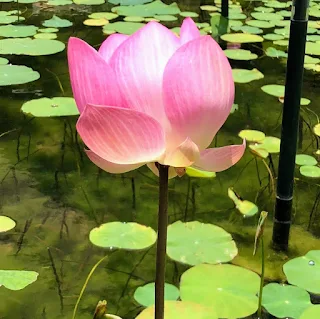Director: Ken-Kin Ng
In the old days, most houses will have a single bathroom. Two, if you are in the upper middle class. Bedrooms were hardly to go by, usually reserved for the female members of the family for modesty. The males would usually rough it out wherever there was space. This was especially so when relatives visited the household. Everywhere they lay their pillow, it was a sleeping place.
Fast forward to 1990 and beyond. Even siblings find it difficult to share living space. They talk about wanting personal space and wanting privacy. The concept of her sharing and accommodation for a fellow roommate or a sibling has suddenly become an alien concept. Hell hath no fury for a person whose personal toiletry or cosmetics are used without consent.
Outside the confines of the home, we were a tolerant lot. We did not tolerate but instead accepted each other with each other's idiosyncratic ways of eating or worshipping. There was no concept of one ethnicity dominating one area over another. No doubt there were majorities, but each just accepted the other. Nobody claims an area to be theirs, even if there were the majority.
We had Indians in Kampong Melayu, Malays in New Villages, Chinese in rubber estates, etc. In the 1980s, we saw townships with a particular ethnic flavour. Shah Alam and later Putrajaya claim to be Malay-centric and refuse to exhibit 'features' or engage in businesses that go against the grain of Islam. The local councils barred the sale of alcoholic beverages and the opening of pubs and nightclubs. Slowly, everybody developed a 'holier than thou' attitude of themselves.
Now, in 2023, even illegal immigrants who had somehow stayed undetected below the radar for years have risen to the occasion. The Rohingyas, Myanmarese, and Bangladeshis have all claimed their pieces of the pie. After congregating at certain localities around the country and developing them by their standard through business and occupation, they claim legitimate ownership of those places.
Naturally, the self-proclaimed princes of the soil would not take any of these. Their leaders, whose mental capacity never grew after the 1960s, used racist and religious catchphrases to bulldoze their agenda through small-minded straw man arguments. The trouble is the people who matter most opt for peace rather than combat bigotry at its core. The future looks bleak.
This film imagines a dystopian Malaysia where an enactment is passed to ensure races are kept separated. It becomes a crime to interact with or harbour a person of a different ethnicity. The race felt that that would preserve the sanctity of the race, but it was a bitter pill they had to swallow. To ensure conformity to the rule of law, there is a group of ragtag vigilantes.
A Chinese family moves on into a traditional Malay house. Unbeknownst to them, a young Malay girl is spotted hiding in the ceiling and scavenging their food.
After some initial trepidation, the family decides to care for her, much to the wrath of the junta, which came for a home inspection. Next to follow is a series of escapes from this hell hole to a neighbouring country.
Something obvious amongst the high-level officials and mega businessmen is that the segregation law does not apply to them. A Chinese factory owner is married to a Malay girl, and a Malay politician is seen making business deals with the Chinese.
The take-home here really is that each race needs the other, and they have no ill feelings towards the other. In their lust to stick on to power and usurp money, the politicians and leaders create a non-existent bogeyman to create fear, divide and rule. It worked for the British then and will work for present-day East India Company 2.0, run by the country's own son of the soil.
 |
The Klang Valley and the nationalities who claim stake. |





















